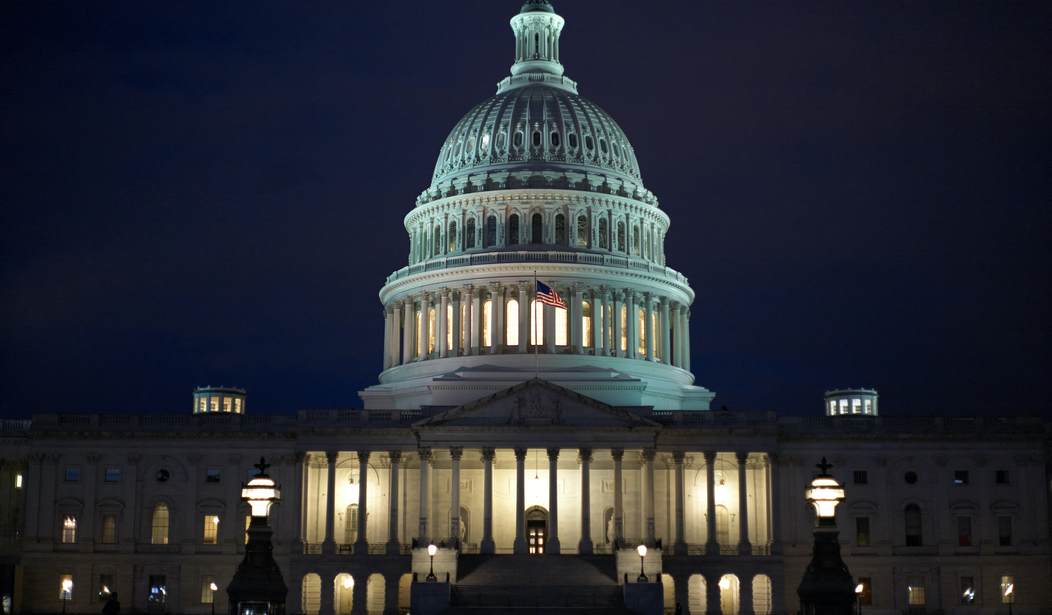Whenever we have a national conversation about government debt, Democrats invariably respond that spending is not the reason the debt is now nearly equal to our national GDP. The real cause of our indebtedness, they inform us, is that taxes aren't high enough and the rich don't pay their fair share. From increasing the marginal tax rate to more than 70% for higher-income earners, to taxing 100% of income above $1 billion, to the president's recent debt-ceiling plan, Democrats overflow with ideas about how to tax us more.
Not only do these ideas reflect incredible ignorance of economic reality, they're also unlikely to have any meaningful effect on our debt levels and would surely slow the economy.
Let's be clear: America's debt problem isn't the result of former President Donald Trump's tax cuts. While I believe these tax cuts should have been offset by closing some of our many loopholes and reducing government spending, they didn't cause our fiscal problems. The fiscal imbalance is not because of reduced revenues. Last year, federal revenue as a share of the economy was a full percentage point above the historical average.
As the Cato Institute's Adam Michel reminded Congress recently, "It's new spending that drives the deficit. For example, President Biden has added about $5 trillion in unnecessary spending to the national debt. That's more than three times the 10 year revenue reduction of the 2017 tax cuts." Trump was no better. Before the pandemic, I often lamented ballooning budget deficits under the Trump administration. And there's also plenty of justified blame for presidents before Trump.
Maybe more importantly, trying to reduce the deficit by raising taxes on the rich is unfair and ineffective. Rich people in America already pay a large amount of taxes. That is true regardless of whether you look at the total amounts they pay or relative amounts. That's because the federal tax system is extremely progressive, even compared to European countries.
European governments pay for their large governments by taxing the middle class. Testifying before the Senate Budget Committee, Michel remarked that if the average middle-class taxpayer were to move to Europe, he would pay in taxes an additional $16,000 annually. The Tax Foundation meanwhile calculated that "If the U.S. taxed personal income in the same way that Denmark does, all income over $82,000 would be taxed at over 55%."
Recommended
But even if one assumes that Congress could extract much more revenue from rich people without hurting capital accumulation, investment and jobs, there still isn't enough income earned by rich people to pay down next year's deficit, let alone the deficits in the next 10 years. Besides, does anyone really believe that if Sen. Bernie Sanders and friends had their way, rich people would continue laboring and earning as much income as they do now?
This is all the more frustrating because we know how to get our debt under control. There's an entire literature on the issue. It shows that countries that successfully reduce their debt-to-GDP ratio adopt fiscal-adjustment packages that consist mostly of spending restraints. On the other hand, countries that try to lower their debt with tax increases not only fail, but also experience larger and longer-lived recessions.
The belief that we can reduce the deficit by taxing more revenue also overlooks the actual spending behavior of politicians. Regardless of how they justify a tax hike, when politicians get their hands on more revenue, they often use it to spend more. The result is rising, not reduced, deficits. Economist Richard Vedder and his co-authors, for instance, found that in the 1980s, every $1 raised by additional taxes generated $1.58 of additional spending. This study was revised at least three times (in 1991, 2007 and 2010) and each time produced the same results.
Finally, changes in taxes, especially in marginal tax rates, have a broader and overlooked effect on the skills and earning power of workers, as well as on overall labor-market efficiency. A few years ago, Aparna Mathur, Sita Slavov and Michael Strain showed that in the long term, a more progressive tax system reduces the incentives to accumulate human capital. For instance, higher taxes on higher earners could incentivize a student entering medical school to become a pediatrician rather than a higher-earning surgeon. We need both, but that's how shortages of surgeons are made.
Here's the bottom line: Congress and the White House must reduce the deficit, and the only realistic way of doing so is by dramatically curtailing spending.

























Join the conversation as a VIP Member